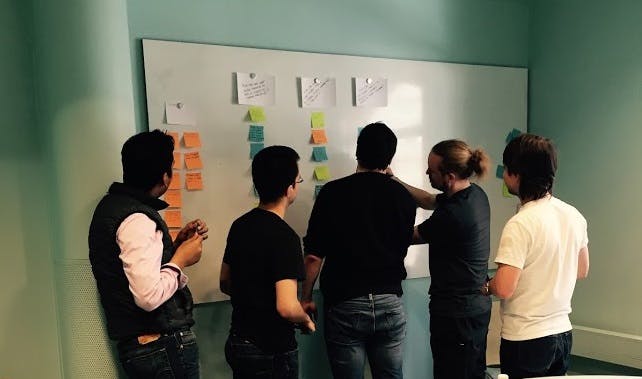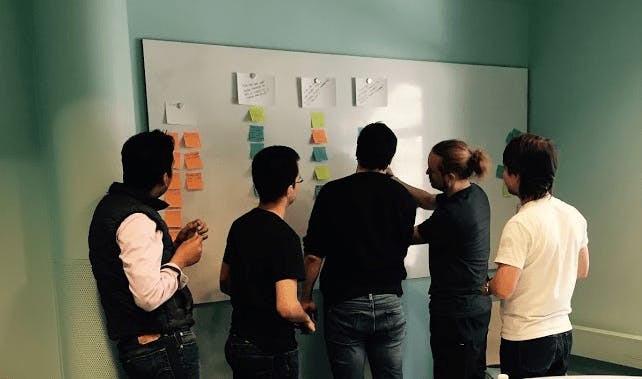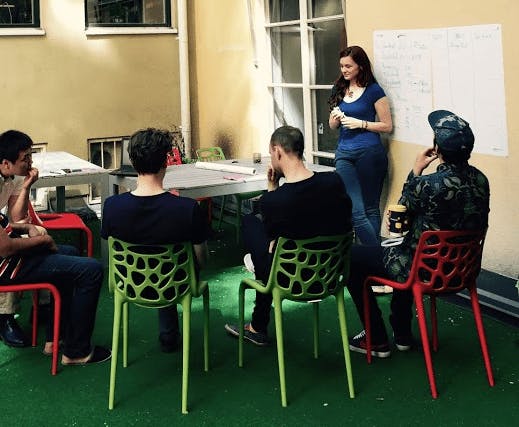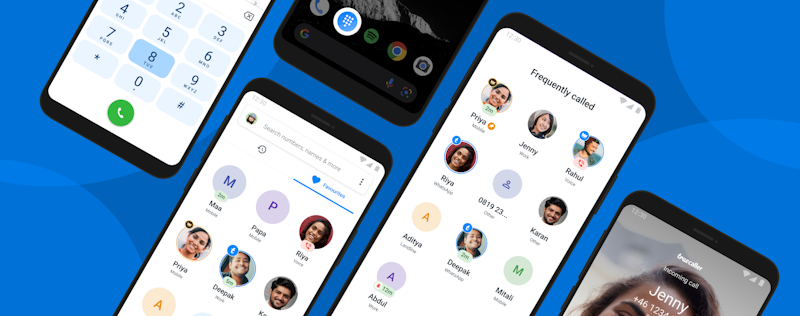
Team Point of Departure: Setting up Teams
Lindsey LaMont
Oct 22, 20154 min readEdited on Feb 26, 2016
Guest Blog by Thomas Lindqvist, Agile Coach @Truecaller
Guest Blog by Thomas Lindqvist, Agile Coach @Truecaller
I was recently given the opportunity to travel to beautiful Bangalore, India to help set up a brand new Truecaller Team. I thought I’d share some thoughts on how I chose to tackle the challenge. My weapon of choice: Team Point of Departure workshops.
A Team Point of Departure is a workshop where we work towards reaching a shared understanding about team fundamentals. We discuss such things as group purpose and goals, and how the group will meet, plan, execute, communicate and relate to each other and the surrounding organization. Expressed academically, the intent is to launch a “self-sustaining process that can proceed without external input”.

Some refer to this as “bootstrapping a team”, but I prefer the term Team Point of Departure, as this implies that the team is about to embark on a journey, where the destination is enhanced group effectiveness. This couples well with Wheelan’s Integrated Model of Group Development, in the sense that a successful Point of Departure speeds up the transition to higher levels by clarifying the basics of team work early in the life of the team.
I chose to go with a very straight forward 1-2-4-All workshop design, and I base the content on Roger Schwarz’ Group Effectiveness Model – with a few minor variations. I’ve broken down Schwarz’ model to a list that covers most of the things that teams need to come to agreement about, and I’ve reframed the list items into open ended questions. The team reflects on these questions first alone, then again two-and-two, four-and-four and finally as a team. Hence the name of the format “1-2-4-All”. This allows the conversations to go increasingly deeper, and the team members can build on each other’s input. This facilitates high quality interactions and it’s also beneficial for team members who might not be comfortable expressing themselves in large groups without the time to think things through a bit. Normally, I would also include an element where team members are invited to share some more personal information about themselves, but as the team members know each other from previous workplaces, I chose to skip this step.

The real value in these exercises is – as always – the quality conversations we’re having and the shared understanding that emerges as everyone have the opportunity to give voice to their thoughts and feelings. The secondary value is a high level condensed version of the conversations, called a Team Charter. The charter can be useful for the team in future retrospectives, facilitate the onboarding of new team members, and help make the team more visible to the rest of the organization. What usually happens, and it certainly happened in Bangalore, is that a few sticky phrases that sort of captures the essence of the team tend to emerge. I think you might be able to tell which phrases I’m thinking about when you read the charter below.
Truecaller’s Director of Engineering, Data Intelligence Manjunath Bharadwaj, had this to say about the experience:
"Every company does Agile a little differently and we got to know the "True Way". It helps us go with the grain. We also got to understand slightly different perspectives on the team’s goals and expectations. We then discussed and came to a common conclusion. And Thomas is the best thing since sliced bread."
Q & A
Team Charter
Truecaller Data Sourcing Team – Bangalore, India
Shared Responsibility – Aggressive Execution
What is the purpose of this Team?
We exist to collect data and make search more intelligent.
We do this to improve the User Experience and contribute to the expansion of the Truecaller user base.
What are we good at?
We are good at team work. We are quick learners and work efficiently.
We are committed and innovative. We write quality code and execute projects with precision and aggression.
What are our goals as a Team?
Our goal is to reach beyond the Truecaller OKR’s by optimizing the search mechanism while supporting Truecaller Back End Teams.
How do we want to work together?
We strive to work flexibly and independently and we share a collective responsibility for our every success and failure.
What are our expectations of each other?
We expect honest feedback and generous knowledge sharing. Good attitude and clear and direct communication. We expect work to be distributed fairly among the Team members.
What are our expectations on others in the organization?
We expect challenging and interesting work, and recognition when we do a good job. We expect swift help when cross-team dependencies block our progress.

Lindsey LaMont
Oct 22, 20154 min read


